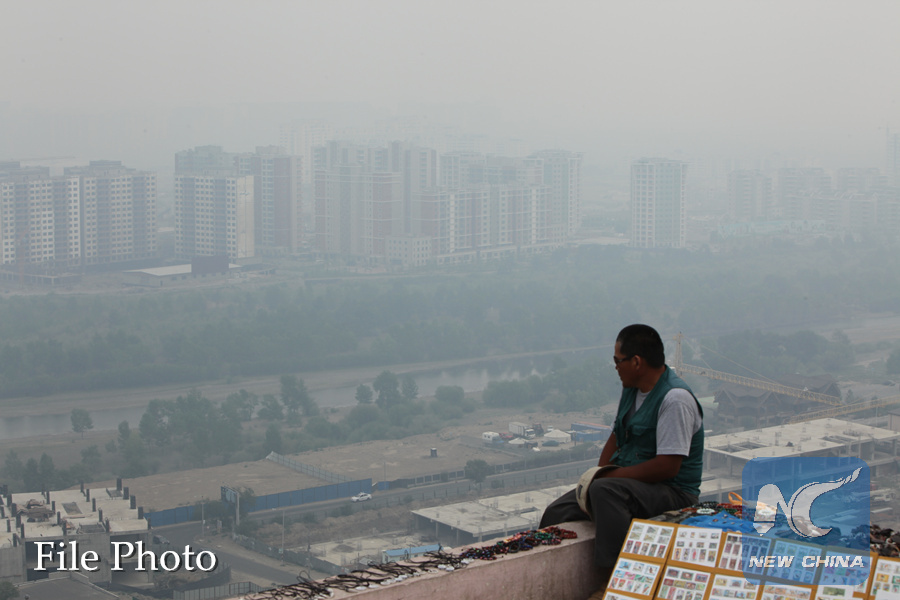
Photo taken on July 16, 2017 shows the city of Ulan Bator covered in smog which was caused by severe forest fires in Mongolia. (Xinhua/Asigang)
ULAN BATOR, Oct. 6 (Xinhua) -- Climate change brings significant risks to Mongolia, said Mongolian Prime Minister Ukhnaa Khurelsukh on Friday when speaking at the parliament on the issues of population resettlement and urban development in the country.
"The situation of rural-to-urban migration in Mongolia has been intensifying due to climate-related natural disasters," he said, and the consequent problems of rapid urbanization pose "significant risks to our country, especially the capital of Ulan Bator."
"Particularly, the air and soil pollution in the capital of Ulan Bator is expected to worsen. So, we need to pay more attention to improving living conditions and increasing employment in other cities and rural areas in order to mitigate the overconcentration of population in the capital region," he said.
The average temperature now in Mongolia is up 2.10 degrees Celsius from 1940, more than doubling the rise in average global temperature, according to the United Nations Environment Programme.
The climate change is increasing the risk of natural disasters, including droughts and the extreme winter weather known as "dzud" in Mongolia.
Nearly 600,000 herders who lost their livestock during the dzuds have migrated to Ulan Bator over the past three decades, showed official data.
Mongolia has a population of 3.2 million, of which 66 percent live in urban areas, Khurelsukh said.
As of the end of 2017, Ulan Bator hosted 46 percent of Mongolia's population.

